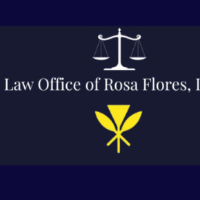 Hawaii RICO Act Lawyer List
Hawaii RICO Act Lawyer List
Sponsored Law Firm
-
 x
x

Click For More Info:
-
The Law Offices of Richard L. Cooper, P.A.
848 Brickell Avenue Suite 800 Miami, FL 33131» view mapDWI/DUI, Drug Trafficking, Felony Nationally Ranked Top 40 Under 40
With Richard L. Cooper you can expect a trusted confidant who will work diligently to fully understand your case and determine a road map to help you regain control of your life.
800-756-2781
Sponsored Lawyers
1-10 of 22 matches
RICO Act
Practicing across all islands in the State, primarily in the areas of Family Law-divorce, custody, paternity, child support, guardianship, adoption, child support, restraining orders--and Criminal Defense, and Appeals.
(more)RICO Act
George Allen Burke is a practicing lawyer in the state of Hawaii handling personal injury matters.
(more)RICO Act
Introducing Michael Zola: A Resolute Advocate in Hawaii's Family Law Arena In the realm of family law, where compassion, expertise, and unwavering dedication intersect, one name stands out: Michael Zola. With an impressive track record and a profound commitment to his clients, Michael has earned a reputation as a highly regarded attorney in the heart of Hawaii. As a trusted legal professional, Michael understands the complexities and sensitivities inherent in family law matters. He approaches each case with an empathetic ear and a strategic mindset, recognizing that no two families or situations are alike. With an unwavering determination to achieve favorable outcomes, he works diligently to navigate his clients through even the most intricate legal challenges. With a deep understanding of Hawaii's unique legal landscape, Michael is well-versed in the nuances of family law in the Aloha State.
(more)



 Richard L. Cooper Miami, FL
Richard L. Cooper Miami, FL AboutMiami Attorney at Law
AboutMiami Attorney at Law ServicesCriminal Defense
ServicesCriminal Defense



